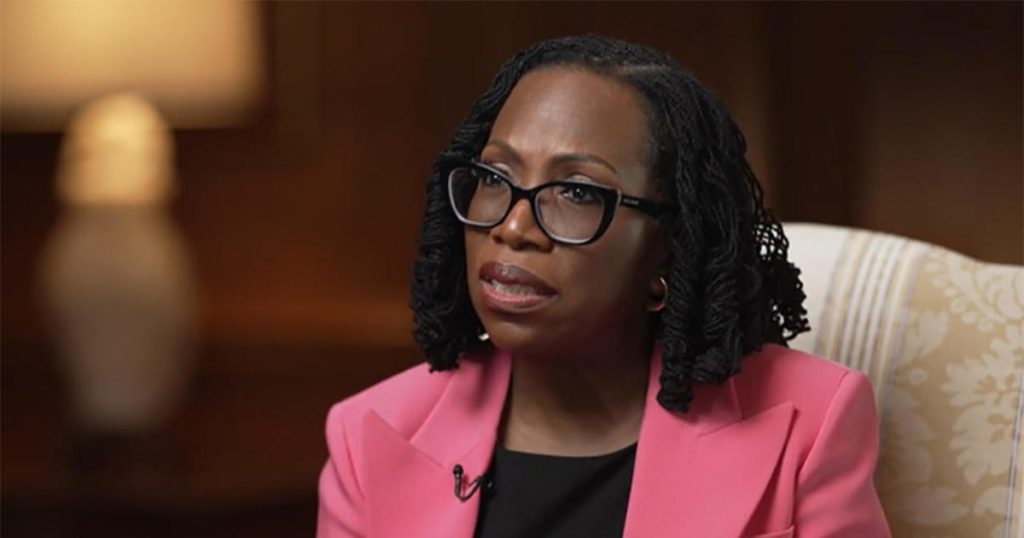In the interview with “CBS Evening News,” Justice Ketanji Brown Jackson expressed openness to supporting an enforceable ethics code for the Supreme Court. She noted that such a code is standard for judges on lower courts and suggested that the lack of a way to enforce ethics rules for Supreme Court justices is an issue that needs to be addressed. Her comments come amidst calls from President Biden and others for stricter ethics rules for the high court to increase transparency and accountability.
Democrats have been advocating for a binding code of conduct for the Supreme Court after a series of revelations about Supreme Court justices’ interactions with wealthy donors and potential conflicts of interest. Justice Clarence Thomas’ relationship with a Texas real estate developer and billionaire Republican donor came under scrutiny after it was revealed that Thomas had accepted luxury vacations and trips on private jets that were not disclosed on his annual financial disclosure forms. Justice Samuel Alito has also faced criticism for undisclosed travel and for displaying flags associated with the Jan. 6 Capitol riots outside his homes.
Justice Jackson emphasized the importance of following ethical rules to uphold impartiality in the judiciary and maintain public trust in the court. She highlighted the role of ethical obligations in ensuring that judges remain impartial when hearing and deciding cases. Jackson’s disclosure of gifts received, including tickets to concerts and artwork, was in compliance with federal ethics rules that require judges to report gifts valued at $480 or more. She stressed the importance of adhering to these rules for public accountability and transparency.
The debate over ethics rules for the Supreme Court has intensified in recent years as public trust in the court has declined. A Pew Research Center survey found that fewer than half of Americans have a favorable opinion of the high court, indicating a lack of confidence in the institution. Justice Jackson expressed concern over the decline in public trust and emphasized the need for the court to uphold the rule of law and safeguard its integrity. She echoed the views of her mentor, retired Justice Stephen Breyer, who emphasized the importance of a commitment to the rule of law by the people of the country and a trust in the court’s ability to uphold it.
Calls for a binding code of conduct and enforcement mechanisms for Supreme Court ethics rules highlight the need for transparency and accountability in the highest court in the land. Justice Jackson’s openness to supporting such measures reflects a broader push for reform within the court to address concerns about potential conflicts of interest and uphold public trust. As the debate over Supreme Court ethics practices continues, it remains to be seen whether the court will implement stricter rules to ensure ethical standards are maintained and integrity is upheld.


